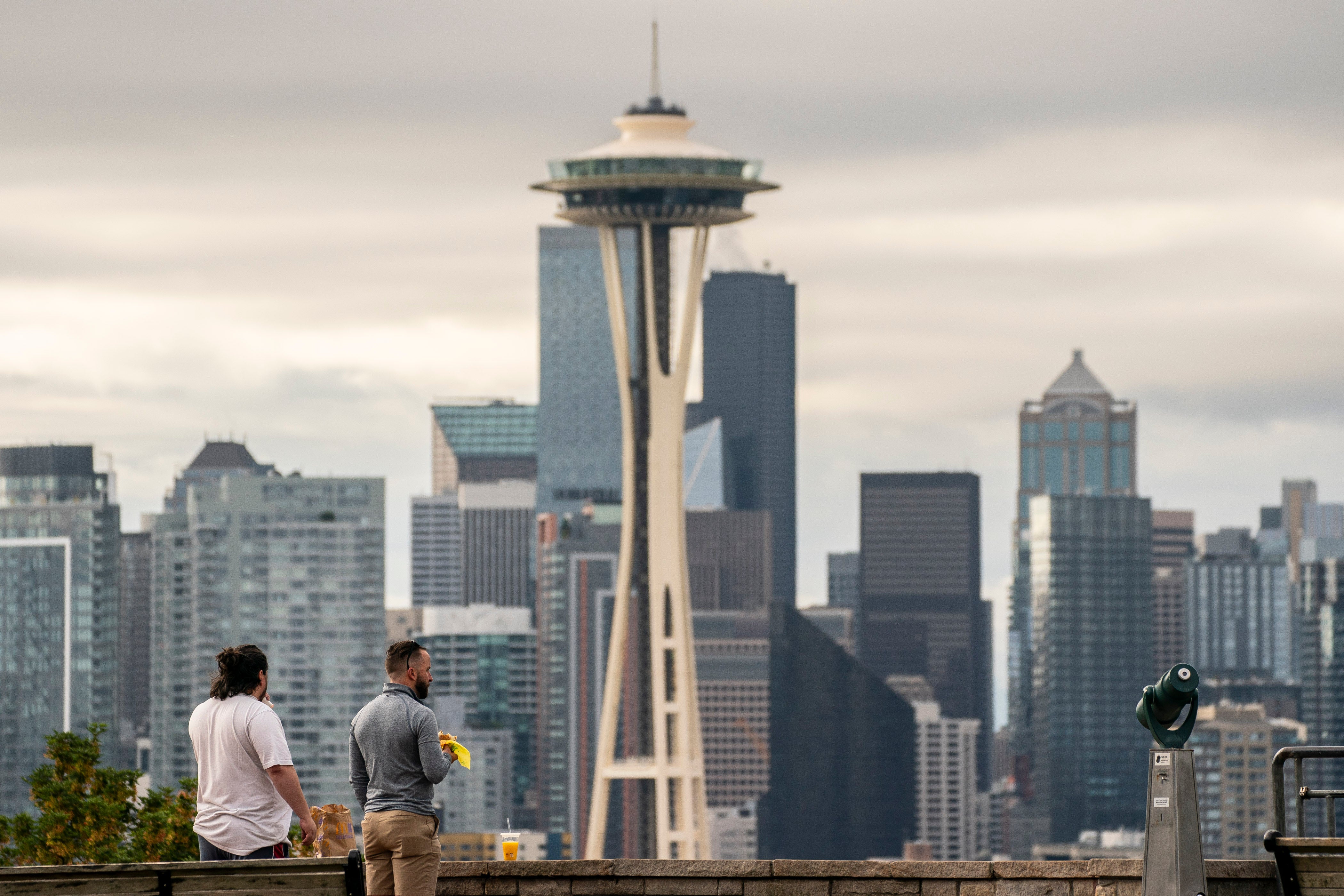Seattle’s mayor says her city is first in US to reach herd immunity from Covid vaccines
Doctor credits affluent and educated population for city’s vaccination success

Your support helps us to tell the story
From reproductive rights to climate change to Big Tech, The Independent is on the ground when the story is developing. Whether it's investigating the financials of Elon Musk's pro-Trump PAC or producing our latest documentary, 'The A Word', which shines a light on the American women fighting for reproductive rights, we know how important it is to parse out the facts from the messaging.
At such a critical moment in US history, we need reporters on the ground. Your donation allows us to keep sending journalists to speak to both sides of the story.
The Independent is trusted by Americans across the entire political spectrum. And unlike many other quality news outlets, we choose not to lock Americans out of our reporting and analysis with paywalls. We believe quality journalism should be available to everyone, paid for by those who can afford it.
Your support makes all the difference.Last week, the mayor of Seattle boasted that her city was the first major urban area in the US to hit herd immunity from the coronavirus. Mayor Jenny Durkan celebrated the milestone of 70 per cent of people in the city 12 and older being fully vaccinated.
Nearly 80 percent of the total population in the state has received at least one dose.
“When we launched our vaccination effort earlier this year, I said that I wanted to Seattle to become the first major American city to fully vaccinate 70 percent of its residents. Today, I am incredibly proud that we have reached that goal,” the mayor said on 9 June.
San Francisco, California caught up to Seattle a couple of days later by hitting the 70 per cent vaccination goal.
Scientists have put this down to demographics and trust in institutions, such as
“I think it’s a combination of an affluent, more educated, and aware population,” Dr Ali Mokdad told Healthline of Seattle’s vaccination success. “And most importantly, they had trust in the government and health officials.”
He stressed that wasn’t necessarily the case in the state at large, which recently joined the trend of lottery incentives to encourage people to roll up their sleeves for a Covid shot.
These schemes seek to boost vaccination rates. Some populations, including communities of colour, have historically had higher levels of skepticism towards vaccines.
In March, the CDC reported that only seven per cent of Black Americans, nine per cent of Latino Americans and two per cent of Indigenous Americans had one dose, according to ABC News.
Vice president and chief diversity officer of John Hopkins School of Medicine Sherita Hill Golden explained why these communities are more likely to be reluctant to be vaccinated.
“People of color, along with immigrants and differently-abled men and women have endured centuries of having their trust violated. We need to give people the facts about the vaccine’s safety and efficacy, and renew their trust toward health care in general.”
At a federal level, President Joe Biden has set the national target of 70 per cent of the population to have at least one jab of coronavirus vaccine by 4 July and announced a “Month of Action”, complete with prizes and similar incentives.
Despite this, the president’s goal is not expected to be reached due to high rates of vaccine hesitancy across the country. It is believed that if vaccine rates continued at their current level, nearly 68 per cent of Americans will have had at least one dose of a coronavirus jab by Mr Biden’s deadline.
Join our commenting forum
Join thought-provoking conversations, follow other Independent readers and see their replies
Comments